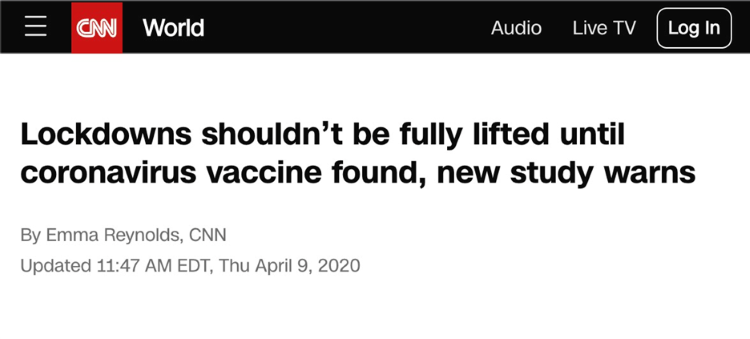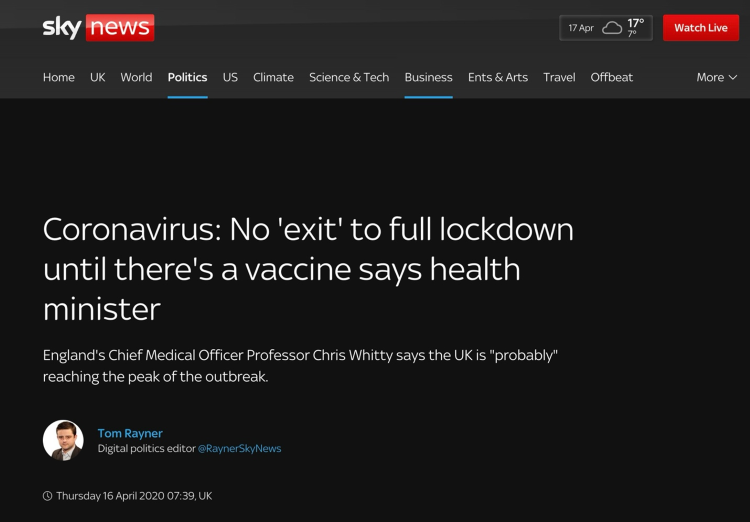Vaccines to prevent SARS-CoV-2 infection were widely regarded as the best means for controlling COVID-19. Since their emergency authorization, billions of doses have been administered worldwide, accompanied by declarations of safety and efficacy. However, no studies on either medium- or long-term risks were conducted prior to the rollout, leaving significant gaps in our understanding of potential harms.
Population-wide vaccination programs began swiftly, but concerns soon emerged about the lack of comprehensive, published clinical trial reports. Current post-marketing pharmacovigilance systems are designed to monitor specific adverse events occurring within weeks of vaccination, such as myocarditis or heart attacks. However, these systems do not detect complex or delayed harms that may not fit neatly into established diagnoses or take longer to manifest. As a result, serious adverse events are under-reported, if they are reported at all.
A common misconception driving the use of these surveillance systems is that all vaccine side effects appear within weeks of vaccination.[1]Extending the observation period reveals a broader range of concerns, including the persistence of spike protein away from the injection site, chronic inflammation, immunoglobulin (antibody) class switching following repeated boosters, and long-term disability. These issues suggest that relying solely on existing surveillance systems may not provide a complete picture of vaccine safety.
Discussion about COVID-19 vaccine safety data is often shaped by government agencies, medical regulatory bodies, professional associations, and major media outlets. Most of the research on vaccine safety is funded by governments or vaccine manufacturers – entities with a vested interest in maintaining public confidence in vaccines. Linking “unapproved” adverse events to COVID-19 vaccines – even if supported by preliminary evidence – is often framed in a dismissive light as a “conspiracy theory” or “lacking credibility”.
A recent population-based study from South Korea, involving 8.4 million people, examined whether COVID-19 vaccination status correlated with cancer diagnoses within a year after vaccination. [2]The study reported higher frequencies of several cancer types – thyroid, gastric, colorectal, lung, breast, cervical, and prostate – among COVID-vaccinated individuals. Differences were noted by age, sex, and vaccine platform, with mRNA vaccines, such as those from Pfizer and Moderna, associated with four cancer types.
The authors warned that their analysis did not establish causality, but their findings gained attention on social media, prompting swift response from fact-checkers.
In an Al Jazeera article,[3]the Sanad Verification Agency, alongside representatives from the World Health Organization (unverified), the British Medical Journal, and Global Vaccine Data Network, rejected claims of a causal link between COVID-19 vaccines and cancer, stating there is no credible scientific evidence to support such a connection. They highlighted the possibility of a surveillance bias: vaccinated individuals may undergo more frequent healthcare visits, leading to earlier cancer detection rather than vaccine-induced cancer. The study’s authors acknowledged this limitation openly and attempted to adjust their analyses, as is the standard practice in observational epidemiological research.
The problem here is not that critics raise potential biases; it is that there is a dramatic contrast between how evidence of risk and benefit are viewed. Studies suggesting vaccine risks are meticulously nitpicked compared to those demonstrating vaccine benefits – especially when the professed benefits include safety in pregnancy or that “millions of lives have been saved.” Most of the time, studies that show benefit also contain confounding, incomplete follow-up, and selection bias. I do not recall Al Jazeera’s fact-checkers calling any vaccine-favorable studies into question.
In the case of the South Korean study, the Sanad Verification Agency did not engage directly with the content of the study, but rather with a caricature drawn by the – albeit cursory – interpretations of online personalities such as Dr. Peter McCullough and Dr. Aseem Malhotra. Shifting people’s attention to these easier targets distracts them from larger, inherently complex issues.
While I am skeptical of claims linking COVID-19 vaccines to cancer – hot coffee and bacon have also been blamed for this – studies like the one from South Korea merit further research. If COVID-19 vaccines are designed to induce lasting (positive) changes to the immune system, then why are potential long-term risks dismissed as unfounded? The Global Vaccine Data Network says it is because “vaccines are designed to protect – not harm,”[4]but this rationale confuses intent with outcome. Understanding the full safety profile of COVID-19 vaccines – especially with recent concerns over DNA contamination during manufacturing[5][6] – is crucial for safeguarding informed public health decisions.
The U.S. Centers for Disease Control and Prevention’s (CDC) Advisory Committee on Immunization Practices (ACIP) has formed a COVID-19 Vaccine Review Task Force to compile data from the Food and Drug Administration, CDC, research studies, as well as clinician and patient reports. From its Terms of Reference,[7]the focus will be to determine how well COVID-19 vaccines work and how safe they are, to look for knowledge gaps (such as how repeated boosters or potential impurities might affect health), and to examine real-world data on deaths, hospitalizations, and long-COVID outcomes.
Their forthcoming report may provide clarity on the safety of COVID-19 vaccines as well as outline recommendations for their continued use. Then again, it may show that neither of the vaccines’ positive or negative aspects contain any substance. Regardless of the outcome, it is likely to generate significant discussion, and the stakes are high.
However, the ACIP’s focus on safety and efficacy might also be a missed opportunity to evaluate a much broader aspect of COVID-19 vaccines. In a Substack article,[8]Max Lacour has written that, beyond being a biomedical device – the inoculation given to individuals – COVID-19 vaccines have carried significant social, political, and moral consequences. They have played a structural role in legitimizing lockdowns, mandates, and social coercion; we locked down “in the hope of” or “until the availability of” COVID-19 vaccines (Figure 1).


Figure 1 – The “lockdown until a vaccine” motivation illustrated through two large media outlets. Images are taken from Max Lacour’s Substack.[9]
Lacour further suggests that, even if the vaccines had been 100% safe and effective, they still have caused enormous indirect harm by being the justification behind policies that disrupted lives, deepened inequality, and set troubling precedents for state power in liberal democracies.[10]Evaluating COVID-19 vaccines solely through the lens of individual outcomes risks missing these broader societal impacts, which are arguably equally critical in understanding their legacy.
References
[1] Demasi M. ACIP launches Sweeping COVID-19 Vaccine Review under Retsef Levi. Substack, 2025. Last Accessed: 19 October 2025.
[2] Kim et al. 1-Year Risks of Cancers associated with COVID-19 Vaccination: A Large Population-Based Cohort Study in South Korea. Biomarker Research, 2025; 13: 114.
[3] Al Jazeera. Did a South Korean Study really claim that COVID-19 Vaccines Cause Cancer? Posted on: 11 October 2024. Last accessed: 15 October 2025.
[4] Petousis-Harris H. ‘Turbo Cancer’ and mRNA: The Myth that defies Biology and Physics. Global Vaccine Data Network, 2024. Posted on: 31 October 2024. Last Accessed: 19 October 2025.
[5] McKernan K, et al. Sequencing of bivalent Moderna and Pfizer mRNA vaccines reveals nanogram to microgram quantities of expression vector dsDNA per dose. Center for Open Science, 2023.
[6] McKernan K. Hyperstimulatory N⁶-methyladenine (m6A) in residual SV40 plasmid DNA in mRNA vaccines. Zenodo, 2025.
[7] Advisory Committee on Immunization Practices COVID-19 Immunization Workgroup Terms of Reference; updated: 20 August 2025. Last Accessed: 20 October 2025.
[8] Lacour M. Was the COVID Vaccine a Success? Further Thoughts on the Vaccine Religion. Substack, 2023. Last accessed: 20 October 2025.
[9] Lacour M. Was the COVID Vaccine a Success? Further Thoughts on the Vaccine Religion. Substack, 2023. Last accessed: 20 October 2025.
[10] Lacour M. Was the COVID Vaccine a Success? Further Thoughts on the Vaccine Religion. Substack, 2023. Last accessed: 20 October 2025.
(David Vickers, PhD, BIG Media Ltd., 2025)


